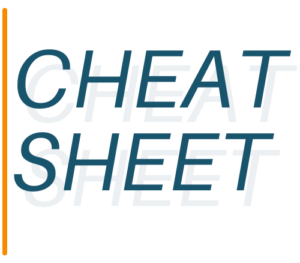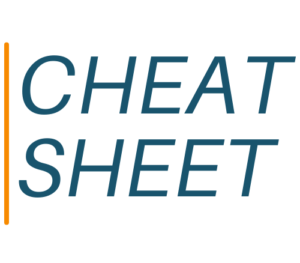
Updated Cheat Sheet: Reporters Who Cover Cybersecurity Surveys
Here’s a cheat sheet comprising 11 reporters who recently covered a cybersecurity survey as news. We carried over three targets from our Sept. 2022 cheat sheet; all other names are new.

Here’s a cheat sheet comprising 11 reporters who recently covered a cybersecurity survey as news. We carried over three targets from our Sept. 2022 cheat sheet; all other names are new.

You need to be logged in to view this content. Please Log In. Not a Member? Join Us

Here’s a cheat sheet on whom to approach and pitch in selected Tier 1 event operations, updated from the Jan. 2024 version. Unlike reporters, event influencers have no content to review.

Below are 23 reporters known to cover funding news. The idea behind this cheat sheet is to capture the core group. To do this, we sometimes had to include more than one reporter per publication.

This grid contains the latest intel on who might place your contributed post. It stays updated in great measure thanks to our kind subscribers, who keep us alerted to shifts and changes.

Here’s a baker’s dozen’s worth of podcasts focused on customer success. Included are podcasts from Forrester and vendor Intercom — those may not be overly pitchable. The rest probably are.

A subscriber recently asked for a POV on where the low-hanging fruit was in the world of AI coverage. As subjective as that might be, it’s still worth trying. Who might you suggest?

Here’s a cheat sheet with ten authors of cybersecurity newsletters on Substack. All are men, and few are Americans.

Here’s an updated cheat sheet with 11 Substack newsletters focused on AI. The selection comprises a combo of analysis-driven work from experts, and newsletters that blend original work with ICYMI links to “AI news of the week.”

Substack is producing a fair amount of talented fintech experts; here’s a cheat sheet with eight of them, with contact info and more.
YOUR ACCOUNT
FRIDGE NOTES
Newly merged TechTarget and Informa this month laid off 10 percent of their employees. Check out the euphemism in the 8-K: “[the] net reduction [will be] up to approximately 10% of the Company’s current global colleague base.” That just beats all, doesn’t it?
Using NLP software, Business Insider assesses how readers will react to its content emotionally, and then sells advertising based on that info. For example, an advertiser can choose to advertise against a story (or video) that makes you feel good or optimistic or pessimistic. This is where content is headed; and this trend may someday affect the way that you pitch.
An avalanche of fake news sites threatens the viability of the web itself. You may need a subscription to read this article, but this publication is definitely worth the money for a subscription.
The former TC star reporter picked a good place to go. Here’s his latest.
When Axios prompted ChatGPT for basic background research on Wealthfront’s confidential IPO filing last week, the bot confidently detailed a Wealthfront investor deck. The problem? It appears to be entirely made up.
Indy media business experts Brian Morrissey and Jacob Cohen Donnelly have built two very successful businesses with both newsletters and face-to-face events. Axios has noticed this and has decided to get into the event space focusing on the economics of publishing, which of course is a topic close to home. Announced this week: an Axios event coming up in September. Hosts: Sara Fischer and Kerry Flynn.